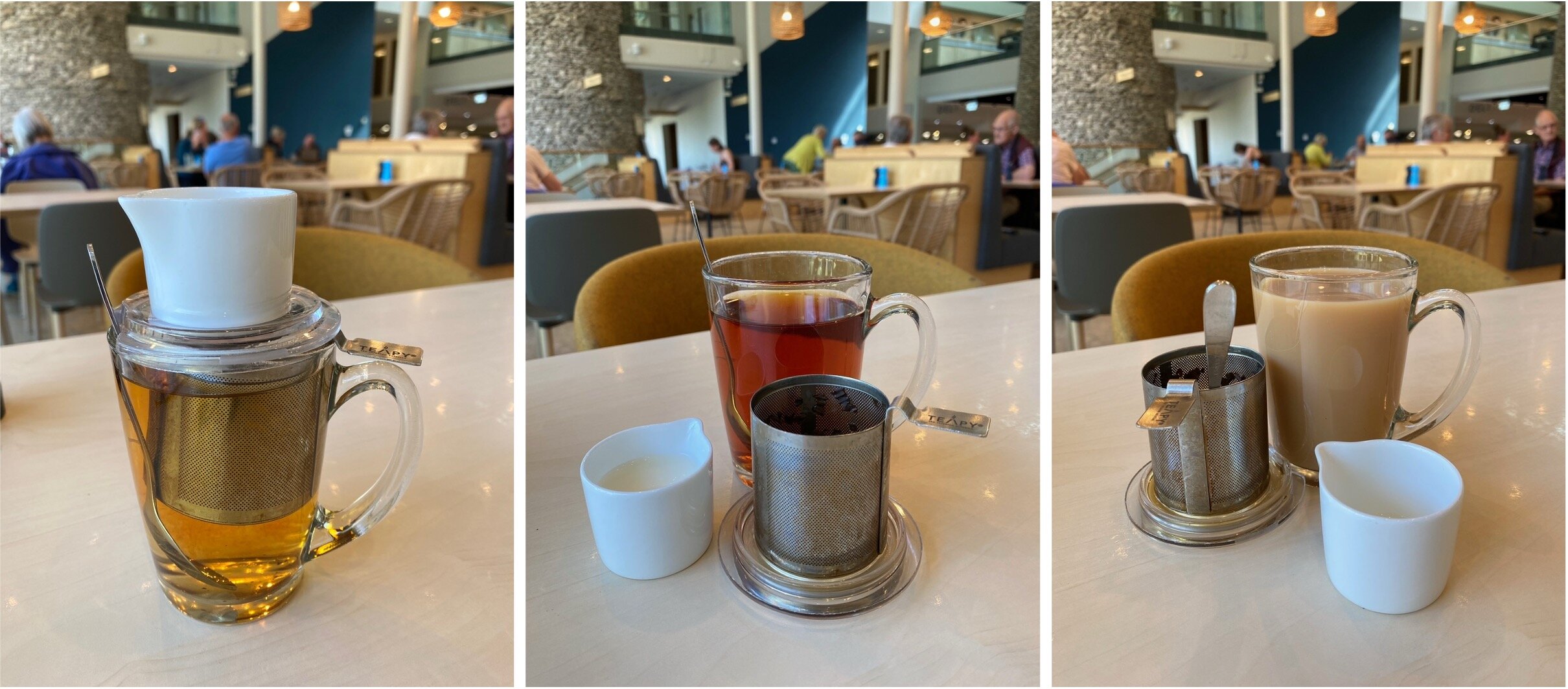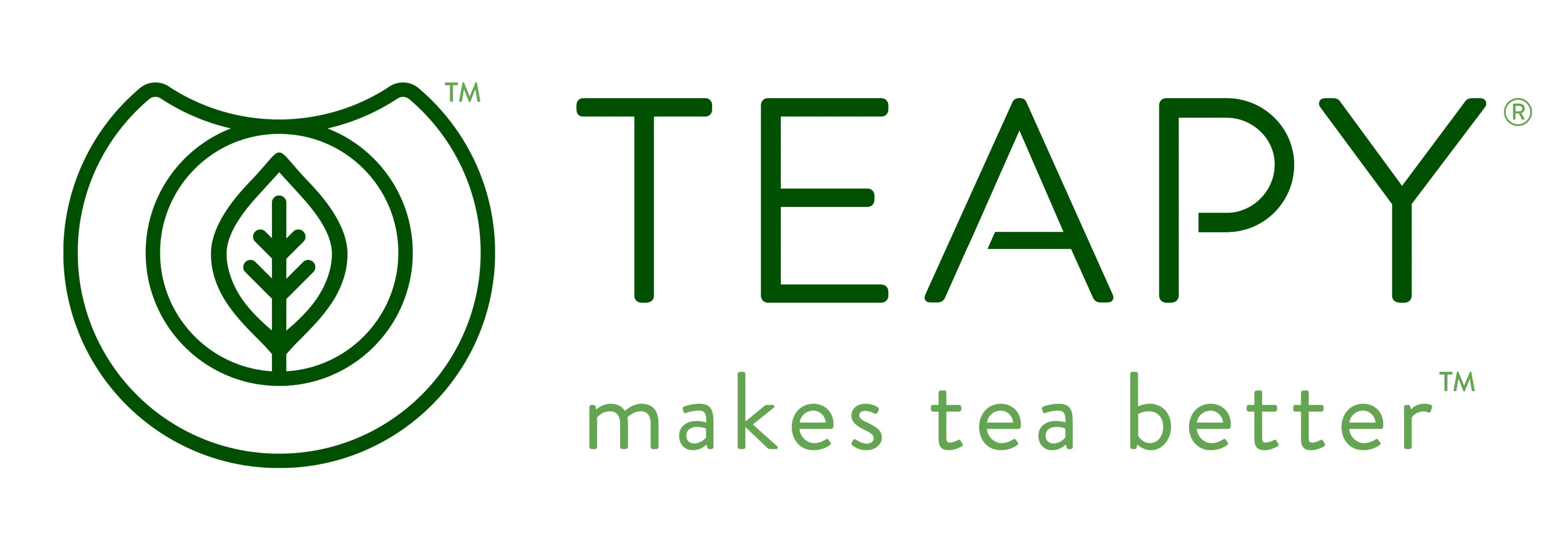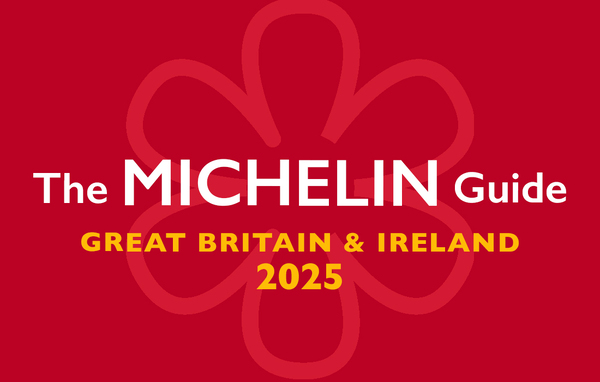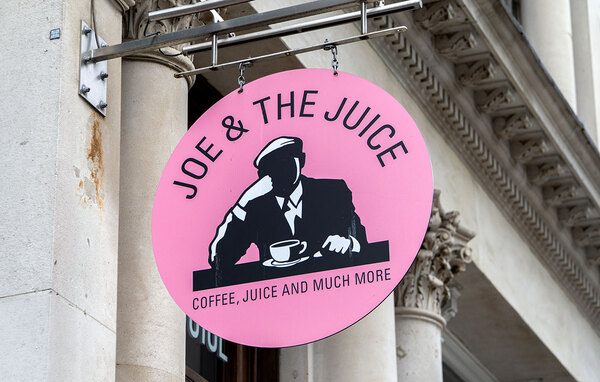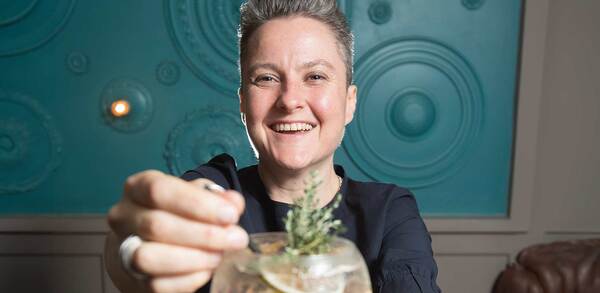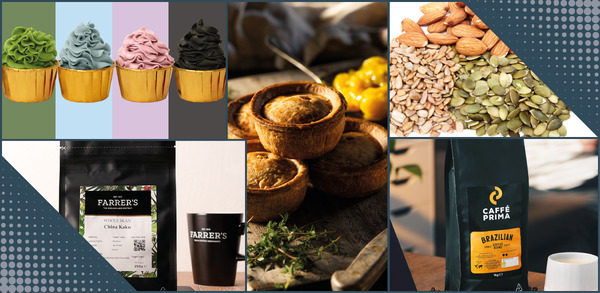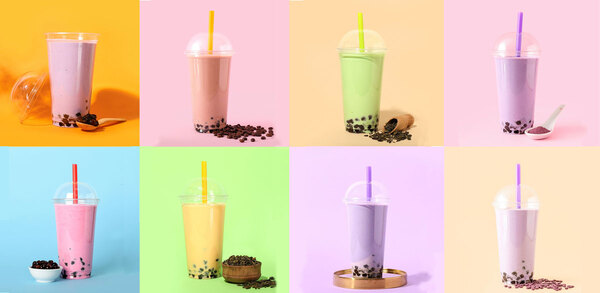Coffee shops to revolutionise tea service in the UK?
With the right tea offering, method of serving and marketing, tea could dramatically increase the visitor numbers and profitability of coffee shops.
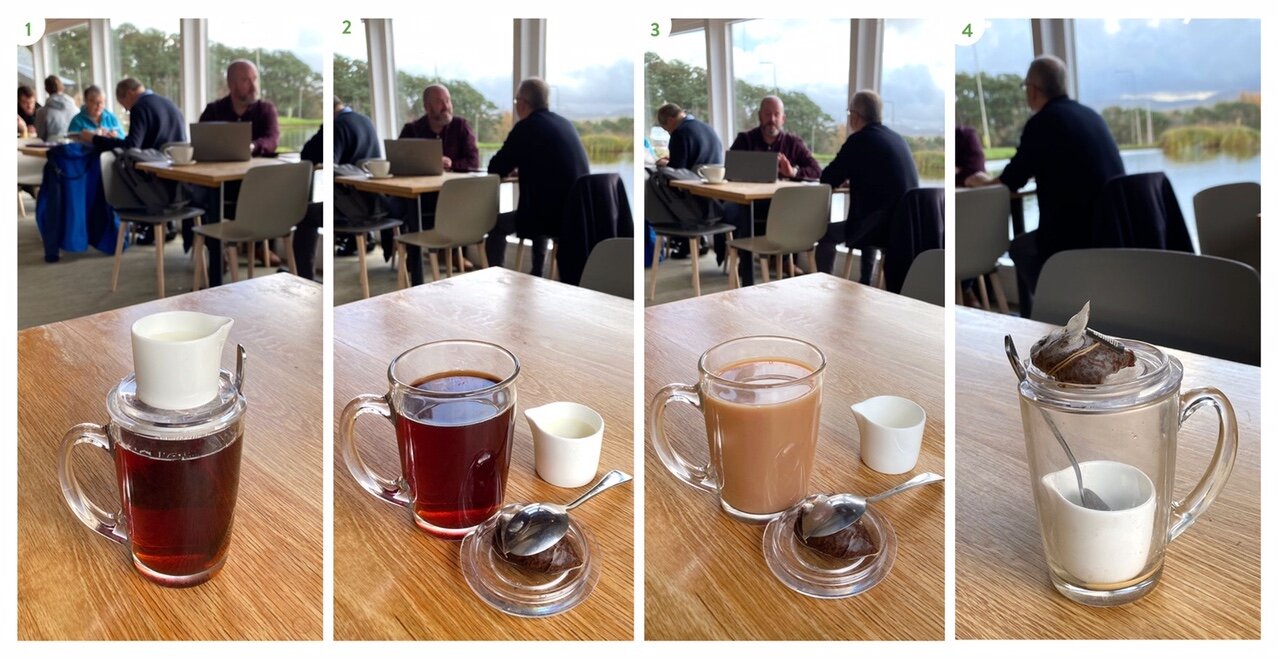
The first record of a coffee house in England was in 1652, and in 1660 Thomas Galway advertised in a London journal that tea was being served in his coffee house. Promoting tea in coffee shops is not a new concept!
In the UK, there are approaching 5,000 branded coffee shops, the Costa, Starbucks and Nero chains being the most prominent, which have revolutionised coffee in the out-of-home drinks market. There are no comparable tea shop chains: tea drinkers have few places to go to enjoy a quality tea experience, meet friends, read a newspaper, or work in a modern environment.
However, 59% of the UK population still drink tea regularly compared to 63% who regularly drink coffee, according to the Statista Global Consumer Survey 2023, and tea held the lead up to 2021, when they were level.
Consistent quality, choice and pleasant, social environments have driven this transfer to coffee, coupled with high street and internal marketing of coffee, with virtually none for tea. Sophisticated coffee machines and well-trained baristas create a wide choice of coffee drinks. However, there are far more types of tea than coffee, tens of thousands of tea types according to Sebastian Michaelis, Tetley’s well-known tea sommelier. With near parity of tea drinkers to coffee drinkers, in spite of the much greater promotion of and hospitality accommodation for coffee, surely an improved quality, variety and service of tea and other infusions is the easiest way for the coffee chains to encourage more customers into their existing and future retail spaces and thus increase profits, in spin-off food as well as tea.
Some coffee brands that supply independent cafes, restaurants and hotels already benefit from wholesaling high quality tea, as illy coffee have done for many years with their Dammann Frères range of teas, fruit and herbal infusions. The way that tea is served is also important but a totally different challenge to coffee, as tea requires 3-5 minutes to brew, to fully develop its health benefits as well as taste. However, the traditional teapot service has many disadvantages for a commercial hospitality or catering company, and “open mug” service cannot provide the required temperature regime for the recommended brew time. One illy coffee customer, catering company Mosaic Bramall, has pioneered the revolutionary TEAPY T-4-1 tea making and serving invention through its development since 2016, at the Stables Kitchen, their very busy cafe at the Bramall Hall tourist attraction in Stockport. The co-owner and director of catering company Mosaic Bramall, Kirsten Boyd, explained, “Our Stables Kitchen cafe has a loyal local as well as tourist clientele, who love our tea service with TEAPY T-4-1. Its carry-in-one hand capability makes it also popular with our servers and it is far more cost-effective than our previous conventional tea service. No chipped pottery or teapots without lids. Amazingly, we have not had one breakage in seven years.”
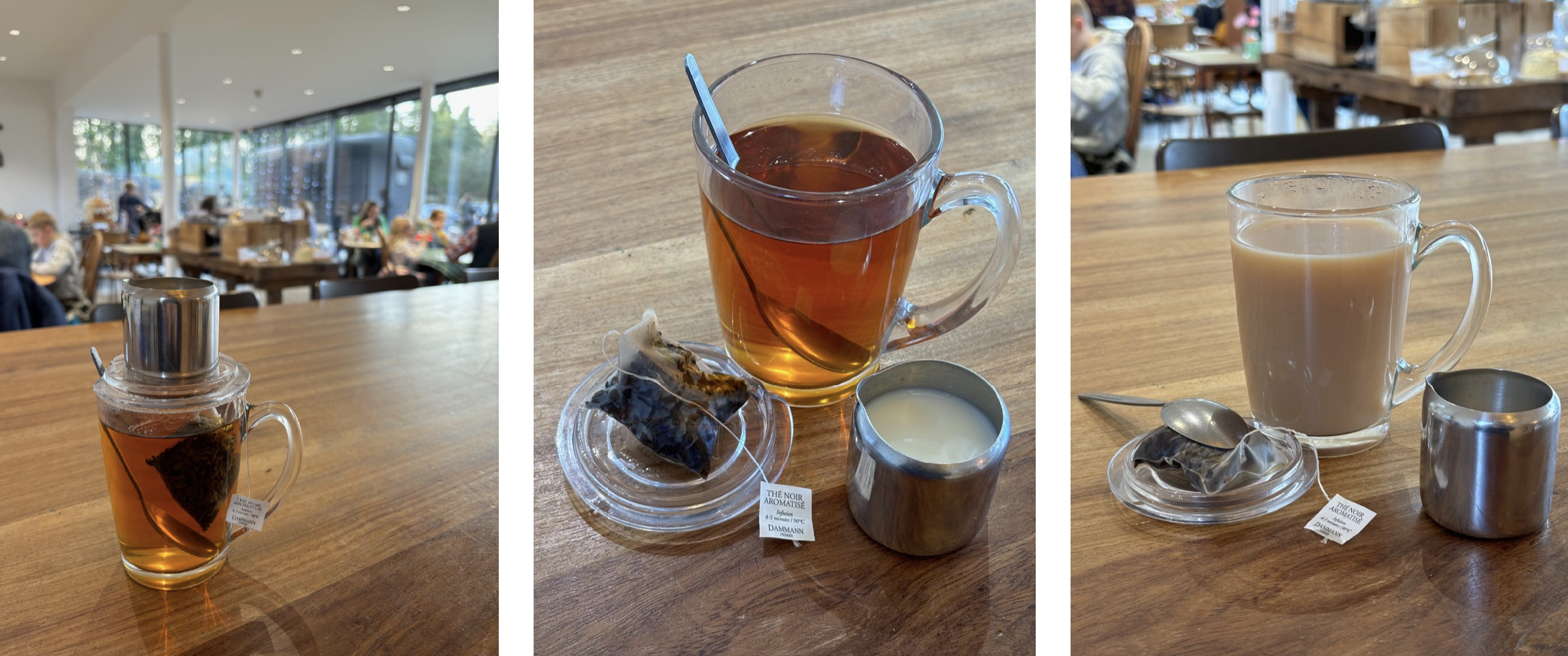
A TEAPY T-4-1 set includes the innovative TEAPY lid for a mug or cup, comprising not one but three patented inventions*. This TEAPY lid enables a complete tea service with mug, teaspoon, milk jug and optional infuser, to be carried safely in one hand. Alternatively, it has the benefit of taking up much less space on a tray, allowing more items to be carried to a table.
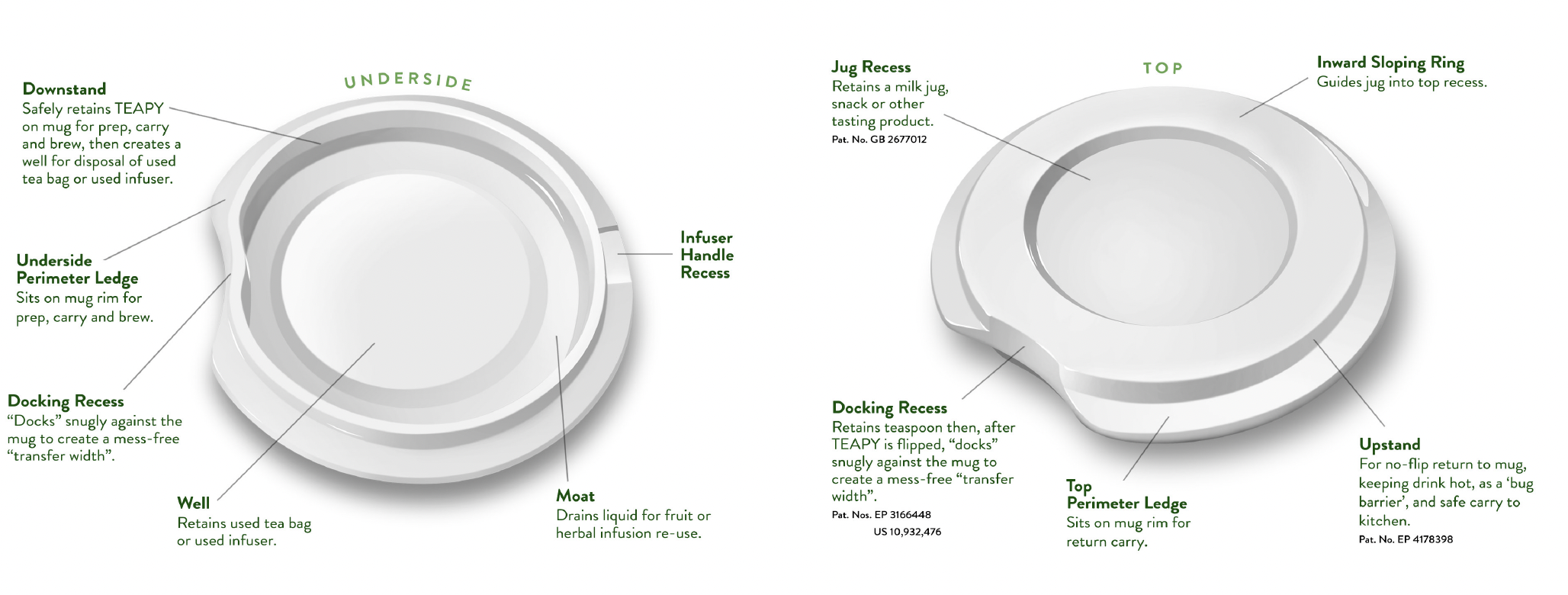
TEAPY Ltd provide a variety of TEAPY drink ware but also encourage others to create their own TEAPY T-4-1 sets under the licensed patents.
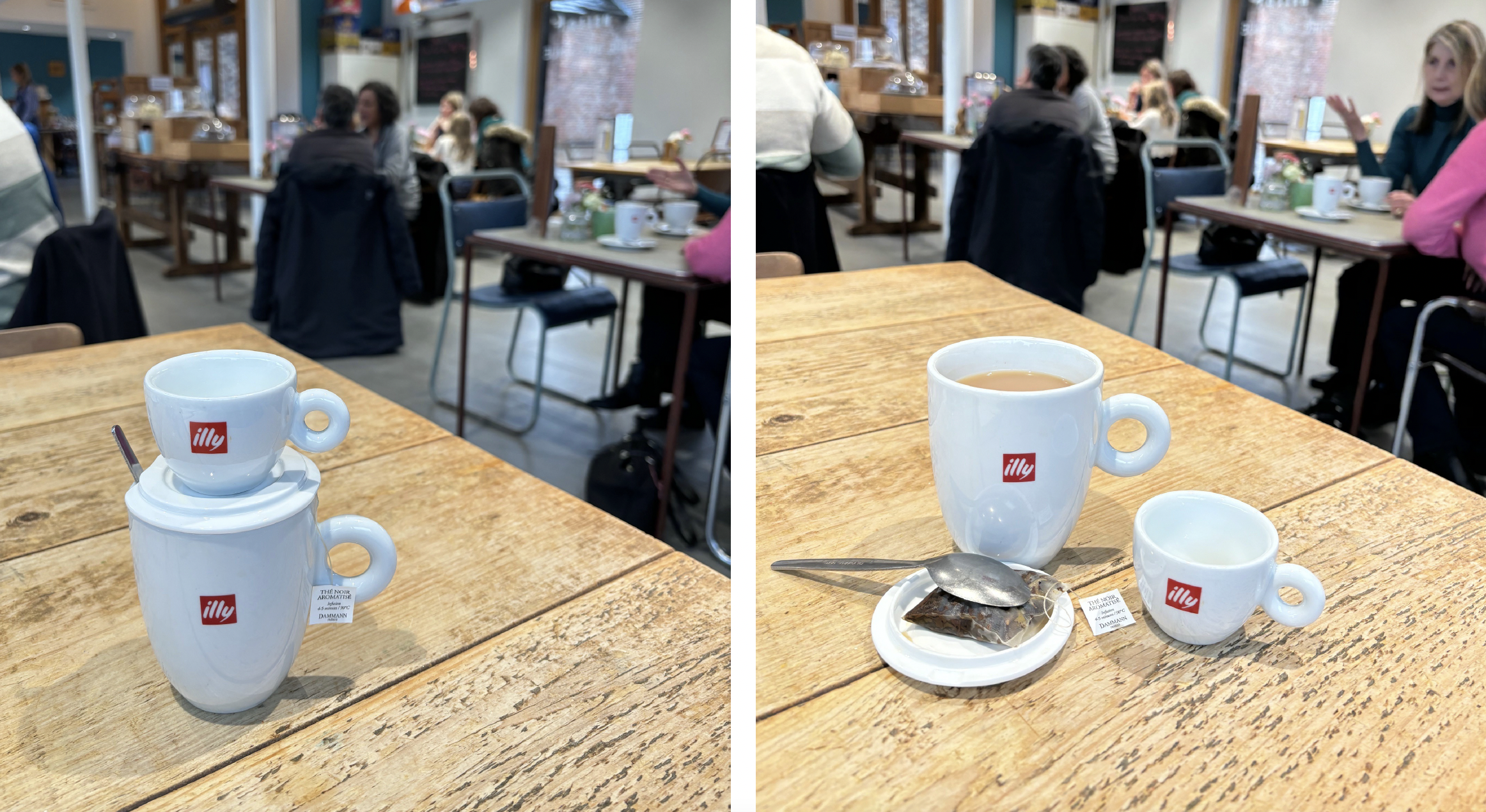
TEAPY T-4-1 has now spread to many types of foodservice, from Michelin-starred chef Aiden Byrne’s The Church Green, Lymm, to the renowned Westmorland Family’s motorway service station cafes at M6 Tebay and M5 Gloucester, as well as their Rheged Discovery Centre near Penrith (see headline banner), with a total of about 10 million visitors a year. Aiden’s wife, Sarah, who runs the front-of-house at The Church Green is enthusiastic, “TEAPY T-4-1 is a sophisticated yet practical and cost-effective way of serving tea with several advantages over our former teapot service.”
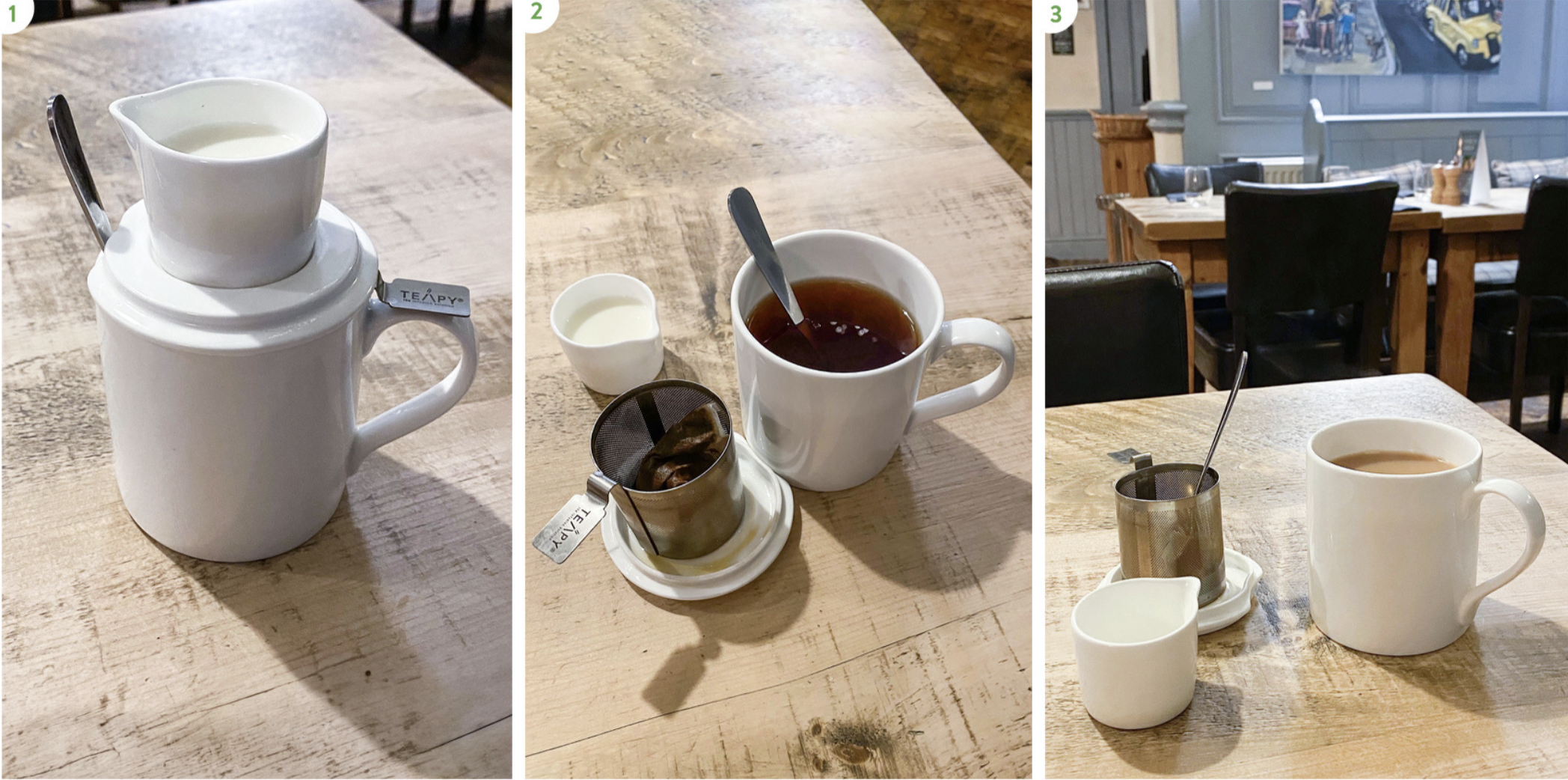
Multi-award-winning Westmorland Family have chosen TEAPY’s toughened glass mug, a Tritan TEAPY lid, a ceramic TEAPY milk jug, and TEAPY’s stainless steel infuser with their existing teaspoons, to replace their former teapot tea service. They serve Canton high quality teas, in loose leaf for all teas, herbal and fruit infusions, except tagged tea bags for breakfast tea.
The inventor, Roland Hill, recalls, “I invented TEAPY T-4-1 out of frustration with a lifetime of poor tea service in the UK, the US and elsewhere. It is intended primarily for the hospitality and catering industries, but has also proved popular in homes and offices. It can be used with tagged or untagged tea bags, loose leaf tea or other infusions; it is ideal for table service, counter service or self-service.”
The existing methods of serving tea at the major coffee shop chains vary but, without exception, there is no promotion of tea as an alternative to coffee except on a menu display, which in many locations is digital and intermittent. Costa’s tea service comprises a conventional ceramic teapot and lid, a cup and saucer, teaspoon and milk jug, requiring a tray to carry and substantial table space. A TEAPY T-4-1 complete tea service has a “footprint” of one sixth of Costa’s tea service, not including the tray. Starbucks tea is currently served in a ceramic open mug with a thick rim, far from the tea lovers’ preferred brewing and drinking conditions. Caffè Nero offers a choice of open mug or teapot service, and the up-and-coming Black Sheep coffee shops have an individual teapot service on its own wooden mini-tray. The teapots of all these brands are opaque, the brewing tea not visible as it continually changes from too weak to too strong. With TEAPY T-4-1, the customer controls the brew strength to their taste, flips and docks the TEAPY lid to the side of the mug, enabling a drip-free transfer of the used tea bag or infuser onto the inverted TEAPY lid.
Timed comparisons show that TEAPY T-4-1 takes up to 43% less barista time to prep for counter service or to provide a full table service. Fewer pieces mean fewer breakages, less energy in dishwashing, less storage space and a virtually unbreakable version has even more sustainability, as well as cost benefits. teapy.co.uk
The former manager of Tate Liverpool Art Gallery’s cafe, Andy Blackmore, now Project Manager at Tate Enterprises with its fourteen refreshment operations, explains, “We were looking to replace our expensive and easily breakable teapots, but when I saw TEAPY T-4-1, it was obviously a better fit for our busy cafe which gains customers from the gallery and one of the UK’s most popular tourist attractions, the restored Royal Albert Dock. We have since taken it to a new pop-up cafe at RIBA North.” Tate Eats serves Jing loose leaf teas, herbal and fruit infusions.
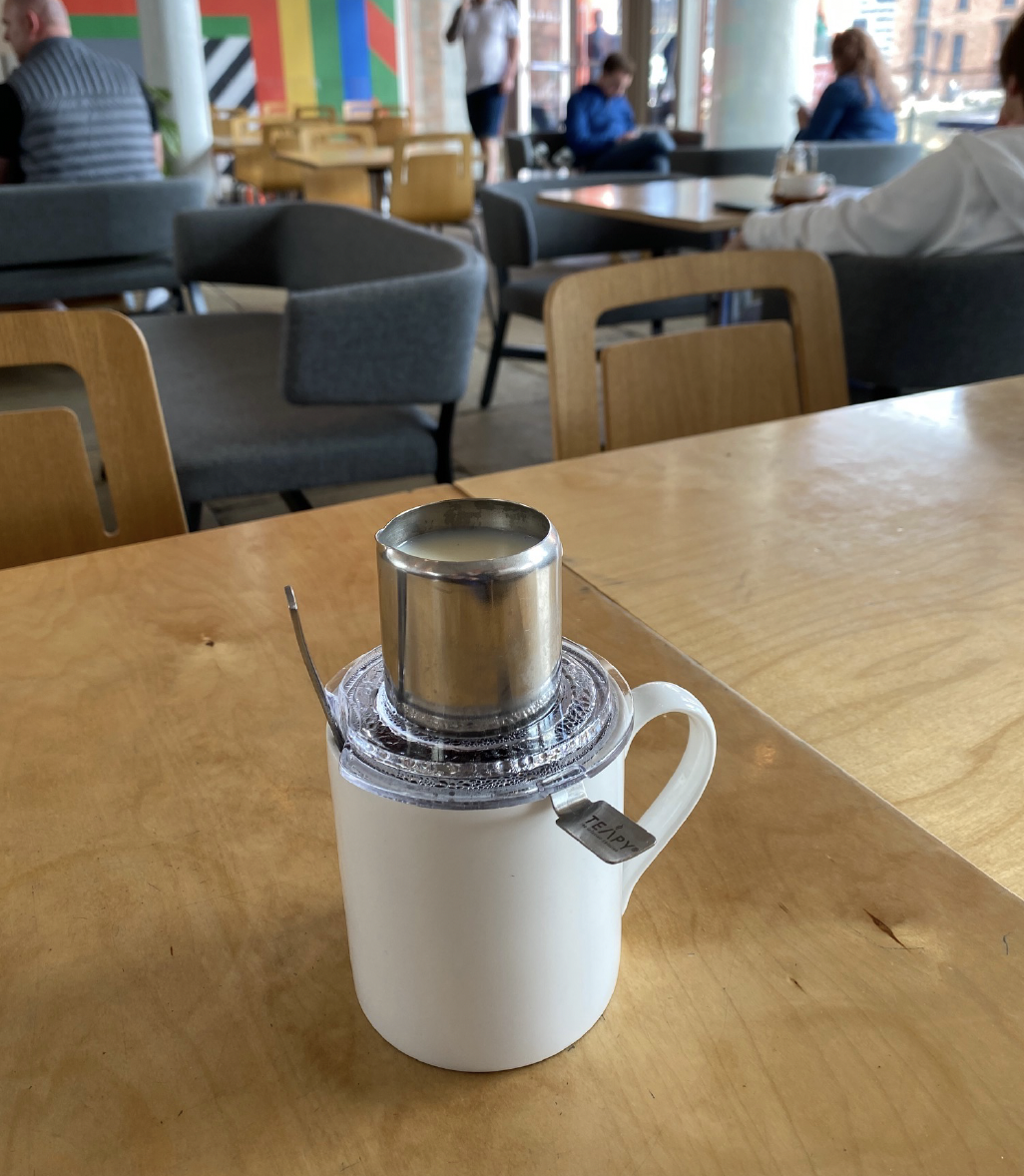
It is impossible to make a good cup of tea if milk is added behind a counter, as it curtails the 3-5 minutes brewing time recommended by virtually all tea brands. Pret a Manger, whose slogan “Organic Coffee : Freshly Made Food” ignores tea, and who serve only single use drink ware, add milk behind the counter, unless a customer specifically requests it to be served in a separate paper espresso cup. TEAPY Ltd has developed a prototype bagasse (fully compostable) TEAPY lid to be used with a standard paper cup and an espresso paper cup for milk, to enable secure carrying in one hand to inside or outside tables or the customer’s home, car or office desk for a proper brew and any milk required.
The FAO (the Food and Agriculture Organisation of the United Nations) 2022 report “International tea market”, includes “green tea as well as herbal and fruit teas are gaining popularity in different markets, especially in Europe, owing to real or perceived health benefits” and “Innovation and ‘premiumization’ are characterising the market, which attracts a growing number of young customers from an emerging middle class.”
No amount of modern, inventive improvements to tea service will realise the potential increase in coffee shop profits unless the total offering of teas and other infusions is improved and is properly promoted. While some of the space currently devoted to internal PoS material for coffee could be transferred to a transformational tea service, another of Roland Hill’s inventions, one-way vision window graphics, already used in the windows of Costa, Pret and Eat, could announce a tea revolution to the high street, shopping malls and other coffee shop locations. contravision.com
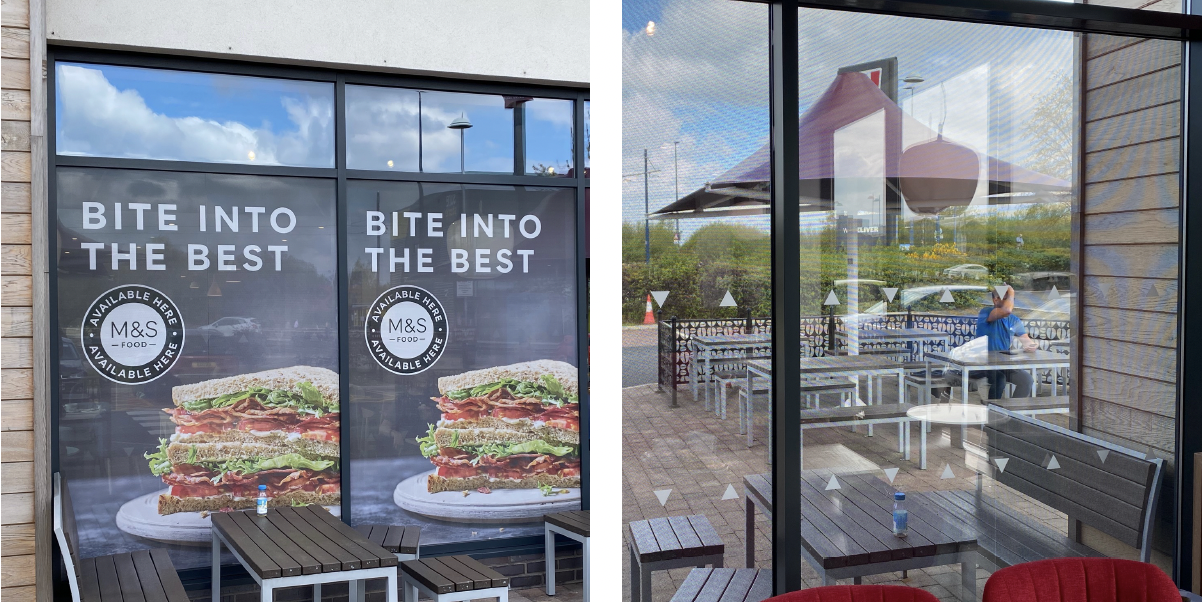
The key question is, will the coffee shop companies and their franchisees, who control about 5,000 excellent hospitality spaces in the UK, be bold enough to better serve the other half of the population that prefers tea, or herbal and fruit infusions, with similar quality, variety, imagination and promotion that has transformed coffee sales? A supplementary question is, could TEAPY T-4-1 make tea and other infusions more profitable than coffee? Only time will tell; is it the time for tea?
- *Patent Nos. EP 3 166 448, US 10, 932, 476, GB 2577012, EP 4 178 398
- teapy.co.uk
- contravision.com
- Instagram @weloveteapyt-4-1
- roland@contravision.com
- TEAPY Ltd, c/o Contra Vision Ltd, 19-21 Ack Lane East, Bramhall, Stockport, SK7 2BE



